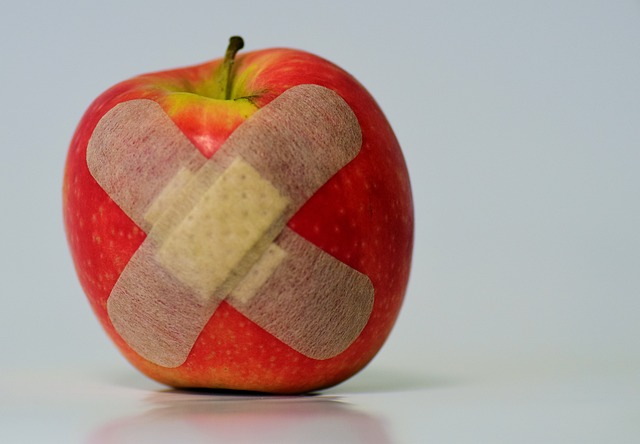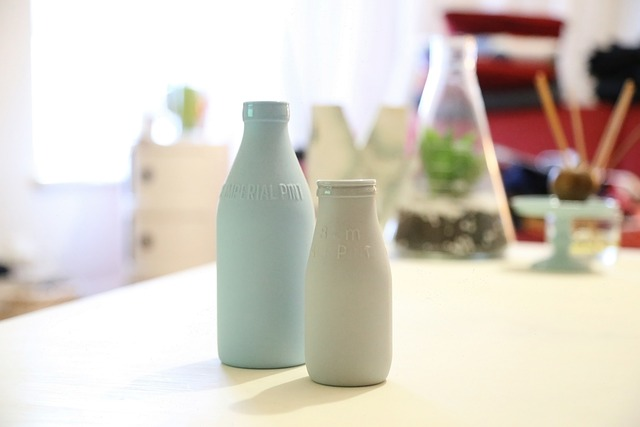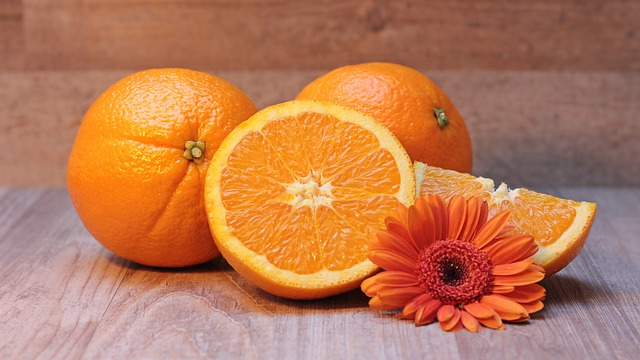Best Supplements For Wound Healing

Yes, it’s true, Vitamins and supplements can help promote healthy skin and the healing process of scars. Depending on your situation or lifestyle, there are certain ones that would be better for you than others. That’s where we come in – we’re going to dive into the world of supplements and wound healing, which ones might just work for you, and why they help with the wound healing process. Let’s explore.

Why supplements are helpful for wound healing
Before we give the list of supplements for wound healing, it’s important to understand just why supplements are so helpful when it comes to the wound healing process.
Our skin is our body’s biggest organ, which is why your skin glows when you have a healthy diet and improve gut health. It’s also why many people associate healthy-looking skin with a healthy body, which is why we should avoid UV rays, for example. But what about when your skin has been wounded or has scarring? Can supplements help with this?
Time is, of course, the best healer when it comes to wounds and scars. Over time, your skin will renew itself, especially if you have a healthy lifestyle, hence why a balanced diet is so important – consuming enough fruit, protein, and vegetables is integral if you want your wounds to heal. This is where supplements help to aid in the wound healing process.
Let’s jump into the best vitamins and supplements if you want to accelerate wound healing.
Vitamin B complex
It might surprise you that vitamins commonly found in beer can actually help with wound healing. Vitamin B complex consists of all essential water-soluble vitamins, excluding Vitamin C. They have been found incredibly important in aiding cell proliferation as well as maintaining healthy skin and muscle tone.
Taking a Vitamin B complex supplement is always a good idea, regardless of if you’re looking to heal a wound. They improve the function of the immune system and nervous system, as well as increase metabolic rate. Don’t drink a tonne of beer to get these vitamins, though – this might end up being counterproductive in your healing process. Cereals, dairy, meats, and fish also have Vitamin B complex if you don’t want to take the supplements.
Interestingly, a study showed that Vitamin B complex supplementation significantly increased wound repair compared to a placebo.
Calcium

Calcium is a main component in healing. In the event of a skin injury, taking calcium supplements will ensure that wounds heal quicker and more effectively, helping to create new skin as well as heal any damaged tissues.
If you think you get enough calcium already it’s important to note that when you need to heal wounds, calcium concentrates increase in the epidermis, making it important to increase your dose of calcium.
Of course, you can get calcium from dairy, but taking a supplement will ensure that you are getting the right amount of intake. This is especially important if you have an open wound of some kind.
Iron
Iron plays a vital role in oxygen transport, cellular differentiation, and the breakdown of free radicals. It is incredibly important when it comes to healing wounds and helping the body maintain a necessary amount of nutrients.
Not only that, but iron deficiency actually compromises healing. Iron supplements should always be considered, especially if you have a vegetarian or vegan diet which may have low levels of iron and Vitamin B12, too.
Taking iron supplements is also recommended for people with pressure ulcers, especially.
Vitamin A
Vitamin A is also another supplement that should be considered if you’re trying to heal a wound. Vitamin A can promote wound healing by accelerating the binding of retinol – something that is essential if you want to heal injuries.
Vitamin A has the potential to accelerate wound healing and plays an integral role in the inflammatory response of wound healing.
There are multiple benefits to taking Vitamin A supplements when you have an open wound or an unhealed cut. Foods with Vitamin A in them include sweet potatoes, carrots, fish, and lettuce if you don’t want to take a supplement. For the most part, ensuring that your diet is filled with fruits and vegetables can be the best step that you can take towards promoting wound healing.
Zinc
Zinc is incredibly important in cell membrane stabilisation, the mobilisation of vitamins C and A and carbohydrate metabolism. In short, zinc plays a vital role in wound healing and is one of the top supplements if you have a skin injury. Low zinc levels in the body have also been associated with impaired wound healing, which only implies that taking zinc supplements will accelerate the healing process.
You can find topical products that include zinc which can only be beneficial to skin wounds, especially because of its anti-inflammatory and antiseptic properties.
Collagen
Collagen is also a main component in wound healing – it is a protein that supports new skin and tissue growth. Collagen formation is also essential in preparing the wound bed, increasing cell growth, balancing the wound chemistry, and improving the strength of the skin.
Collagen has been found to be so helpful with wound healing that dressings now have collagen technology to help stimulate new tissue growth. It really is essential. However, you don’t need to invest in the dressings if your wound isn’t incredibly deep – a supplement will suffice.
Protein
Protein is essential for those who are recovering from any type of injury. It’s perhaps one of the most important nutrients you need to take if you want to regenerate after an injury as well as boost the immune system.
Of course, you can get protein from foods, but you can also supplement protein in your diet. It is also especially important to take more protein if your injury is making you more inactive than usual – this will ensure that your muscles are preserved and do not suffer as a result.
Glutamine
Glutamine is an amino acid which is essential for the metabolism of cells – something incredibly important in the healing process. When your body goes through trauma or sepsis, glutamine needs to increase in the body, and many believe that it will speed up wound healing.
We would recommend contacting a healthcare professional before taking glutamine as taking too much can cause certain side effects.
Vitamin E
A recent study found that Vitamin E can promote wound healing and a vitamin E deficiency can slow down the healing process. It’s also important to take a Vitamin E supplement following an accident, for this reason.
Reports have also suggested that supplementing Vitamin E accelerated healing and improved the cosmetic appearance of wounds and burns, helping to minimise scarring.
Certain foods have vitamin E including nuts, seeds, spinach, and seafood. Taking a Vitamin E supplement will not do any harm, however.
Vitamin C

Vitamin C or ascorbic acid is involved in all aspects of the wound healing process. During the inflammatory response, it helps clear the site and during the proliferative phase, vitamin C helps with synthesis.
A vitamin C deficiency can increase the chances of scarring by altering collagen production. Of course, sources of vitamin C are citrus fruits and also food such as broccoli, strawberries, and potatoes.
Vitamin K
Vitamin K is necessary for blood clotting and helps in the formation of new blood vessels, which is important for wound healing. Many people take extra Vitamin K when they are recovering from an injury or surgery.
Arginine
Lastly, we have arginine – another amino acid which helps to stimulate protein synthesis and collagen deposition. Arginine has the potential to increase blood flow to an injured site, minimise the risk of blood clotting, and help with tissue cleanup.
There have been studies using rodents and humans that have shown that a high dose of arginine supplementation did increase collagen accumulation and accelerate wound healing. Of course, always talk to a healthcare professional before taking high doses of any supplement.
Foods that contain arginine are nuts, eggs, spinach, whole grains, and soy products. Having a healthy balanced diet gives you the vital nutrients that your body needs to heal.
The bottom line
Healing from an injury or surgery can be a long, tedious process, but with the help of certain supplements and foods, you can improve your immune function, decrease discomfort, and heal wounds. A balanced diet, supplemented by certain nutrients and vitamins will help aid in your recovery.
FAQ
What are supplements for wound healing, and why are they important?
Supplements for wound healing are nutritional aids that can help the body recover from injuries, surgeries, or other wounds. They provide essential nutrients to support the body’s natural healing processes.
What are the key nutrients for wound healing?
Key nutrients include vitamin C, vitamin A, vitamin E, zinc, copper, vitamin K, and protein.
Can I get these nutrients from my diet alone?
Sure, a balanced diet can provide sufficient nutrients for wound healing. However, in certain situations where dietary intake is insufficient, supplements are important.
What are some other tips for promoting wound healing?
Maintaining good overall nutrition, staying hydrated, keeping the wound clean, and following your healthcare provider’s recommendations are essential for optimal healing.
Can supplements replace medical treatment for wounds? While supplements can support the healing process, you should never use them to replace medical treatment for serious wounds or infections. Always seek professional medical advice for proper wound care and treatment.
